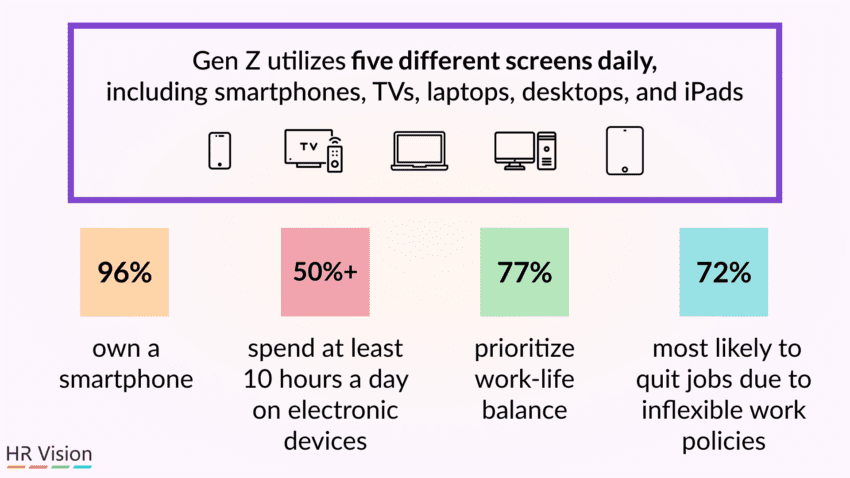The Return to Office mandate has been a challenge for so many workers, from navigating a long commute to finding affordable child care and managing family schedules. However, there’s a generation that started their career at the beginning of the pandemic and may only know work life as remote employees. For Gen Z and even younger Millennials, the return to office can be overwhelming. They may struggle with the cultural shift and find it difficult to adjust to office life norms that many of us take for granted. And it’s an issue that can’t be ignored in the hopes that younger workers will just “adjust”. By 2030, Gen Z is projected to make up about a third of the workforce and their needs and influence will only continue to impact the office.
Why is Gen Z struggling with returning to the office? After all, we’ve read reports that many of them feel lonely and isolated working remotely and crave in-person contact. Let’s take a look at 4 top challenges they’re facing:
- They’ve never experienced office norms. From in-person meetings to casual chats while getting a cup of coffee, this is all new to many younger workers. This also includes things that are often learned through direct experience (aka, the hidden language of the office), such as:
- Reading the tone of meetings and knowing how (and when) to speak up in groups
- How to deal with making mistakes and take accountability
- How to build visibility at work
- They’re used to autonomy: Working remotely forced many early-career employees to be self-starters and find their work rhythm and direction without a lot of external help or validation. Now, being watched and interrupted can feel distracting and even undermining. They may feel like they’re not trusted and start to become disengaged with the workplace.
- They’re feeling overwhelmed and overstimulated in the office: For a generation used to remote work, office life presents a whole new set of sensory overload: constant noise, lack of space, social anxiety. This can quickly lead to fatigue, a loss in productivity and burnout.
- They feel like they might be “misunderstood”: In a remote setting, the work spoke for itself. Now, it’s not just about productivity, but there’s pressure on younger workers to present themselves in a certain way. This can cause anxiety about being perceived as “antisocial”, “awkward” or “checked out”. They may fear that this could impact their career advancement.
If you’re struggling with the challenges of returning to the office full time and the stresses of life in general right now, working with a coach, like Leah M Joppy and Associates, can help. Coaching can provide a fresh perspective, goal setting and strategies to make this major life transition a little easier to handle. For managers, we can help you learn the most effective ways for managing the growing number of younger workers and dealing with the challenges they’re experiencing in the office.
To learn more, call us at 301-670-0051 or email us at leah@lmja.com.
